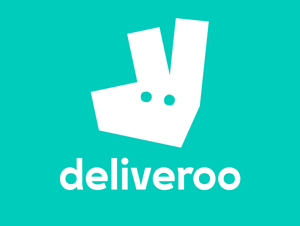The Amazon-backed company, in line with other home-delivery firms, says it has seen orders soar in the past year as locked-down households called in food.
Eight-year-old Deliveroo’s market capitalisation on listing is set to be between £7.6 billion and £8.8 billion ($10.5 billion-$12.2 billion, 8.9 billion euros-10.3 billion euros), it said in a statement.
The deal will be the biggest London stock market flotation for about 10 years, according to data provider Dealogic.
Mining titan Glencore was valued at £36.7 billion in its London IPO in May 2011.
Deliveroo’s listing, expected in April, is meanwhile seen as a major boost to London’s financial sector, known as the City, which has been hit by Brexit turmoil.
The City recently lost its European share trading crown to Amsterdam following Britain’s exit from the European Union.
“We are proud to be listing in London, the city where Deliveroo started,” company founder and CEO Will Shu said.
“Becoming a public company will enable us to continue to invest in innovation, developing new tech tools to support restaurants and grocers, providing riders with more work and extending choice for consumers,” he added.
The offer price range has been set at between £3.90 and £4.60 per share, Deliveroo said.
It will sell around £1.0 billion worth of new shares, while current investors in the company plan to sell part of their holdings.
The share price range “is higher than previously expected and makes it the biggest IPO in London for some time,” said Neil Wilson, chief market analyst at Markets.com.
A recent fundraising round had valued the company at more than $7.0 billion.
– ‘Strong start to 2021’ –
The listing update was published alongside news that Deliveroo’s app transactions ballooned by 121 percent in the first two months of 2021.
“We have seen a strong start to 2021 and we are only at the start of an exciting journey in a large, fast-growing online food delivery market, with a huge opportunity ahead,” Shu said.
Deliveroo earlier this month announced that it made an underlying loss of £223.7 million in 2020.
That was despite the value of transactions rocketing 64 percent to £4.1 billion.
Since its London launch in 2013, Deliveroo has expanded into mainland Europe, Asia, Australia and the Middle East.
Last year, more than six million people ordered food and drink every month via its app from 115,000 cafes, restaurants and stores.
However, its business model has come under scrutiny, including in Britain, France and Spain, as its freelance delivery riders complain about working conditions, reflecting wider concerns over their rights in the gig economy.
Britain’s antitrust regulator last year approved Amazon’s 16-percent investment in Deliveroo after an in-depth probe concluded it would not harm competition.
Deliveroo has said that some £50 million of it shares will be made available for customers, with delivery riders and restaurant partners also able to participate.

